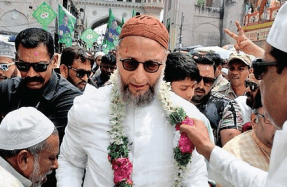
In 1869, telegraph pioneer John Pender set up the British Indian Submarine Telegraph Company to lay undersea cables from Britain to India. When English author John Ruskin was told about the venture, he asked, half in jest: “I wonder what the message will be.” A century and a half later, a man of Indian descent, well-tailored and whip-smart, has become a powerful message unto himself, to a country that has itself has become a joke as it grapples with an economic crisis and political instability. Former hedge-fund manager Rishi Sunak has become the youngest prime minister of Britain in 200 years, and the first person of colour and the first practising Hindu to hold that office.
The lights had long dimmed on the Empire where the sun never set and on Diwali day this year, Westminster was drowned in a festive light of diversity, as the Empire struck back in style. Even Labour peer Paul Boateng could scarcely contain his joy: “Britain has shown the world that you can have a truly multi-racial democracy and it’s something I’ve fought for all my life.” For Sunak, it has been an astonishing race to the top. He was the first minister to quit the scandal-scarred Boris Johnson cabinet on July 5, which marked the beginning of the end of BoJo’s government. Soon, he became one of the two candidates in the prime ministerial race after winning the backing of the majority of Conservative MPs. Later, he failed to win the hearts of Tory members against his party colleague and foreign secretary Liz Truss, a gutsy and vocal schoolteacher-turned-politician. Truss’s government lasted a mere 49 days—an embarrassing record of its own—and Sunak was elected the prime minister after securing the support of more than half of the Tory MPs.
In retrospect,). Post Brexit, the UK moved away rapidly from the promised land of financial opportunities and trade deals with the rest of Europe. Amid the highest inflation in four decades of above 10 per cent, the pound plummeted precipitously to 1.03 to the dollar, its lowest level ever, in late September. Food prices spiralled upward at their fastest pace in more than 40 years. A cost-of-living crisis hit all parts of the country as wages remained low. Consumer spending nosedived, with data released on October 21 showing that people were buying less than before the pandemic. Interest rates were climbing up, sparking angry reactions. Britain’s famed bureaucratic and diplomatic efficiency, and the advantage of a universal language, was fast losing its steam.






